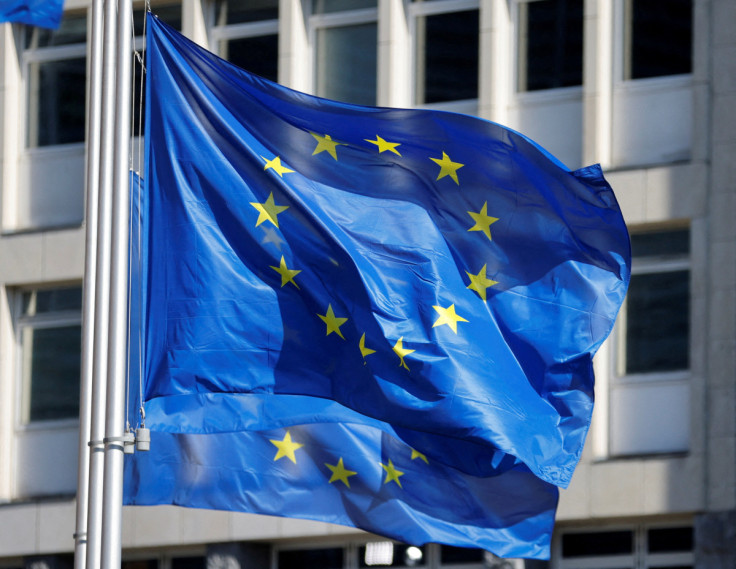How deforestation affects us all
By eliminating forests, we limit the number of products we can manufacture from wood. Unfortunately, one of those products is toilet paper.

As if 2023 isn't bad enough already, a new European Union (EU) ban aiming to remove products linked to deforestation from store shelves may hit us all where we need it most: toilet paper. During the first few months of the Coronavirus in 2020, consumers in several countries cleared the shelves of toilet paper out of fear of a shortage. Now, it seems, this nightmare is back to haunt us.
The European Parliament recently approved a landmark deforestation law to ban imports into the EU of coffee, beef, soy and other commodities if they are linked to the destruction of the world's forests.
Deforestation, the process of clearing trees and vegetation from an area, often for the purpose of converting forested land into agriculture, pasture, or urban development, has significant impacts on the world's ecosystems, climate, and human populations. Deforestation is also responsible for up to 15 per cent of global greenhouse gas emissions and is a key contributor to the loss of biodiversity, soil erosion, and water scarcity.
The global toilet paper shortage of 2020, sparked by panic-buying in response to the COVID-19 pandemic, highlighted a critical issue: the link between consumer behaviour and deforestation. As people rushed to stockpile toilet paper, concerns arose about the impact of this trend on the world's forests, which are essential for the planet's health and the well-being of people and wildlife.
One of the primary drivers of deforestation is the production of pulp and paper products, including toilet paper. Many toilet paper brands rely on virgin pulp sourced from old-growth forests, rather than using recycled content or sourcing from sustainably managed forests. This practice has significant environmental and social impacts, including habitat loss, carbon emissions, and human rights violations.
One toilet paper manufacturer, Cheeky Panda owner Chris Forbes, told the Grocer: "There will definitely be a squeeze on availability and we can expect the price of recycled tissue to rise as demand for alternatives increases."
The European Parliament recently approved a landmark deforestation law that will require companies that sell goods into the EU to produce a due diligence statement and "verifiable" information, proving their goods were not grown on land deforested after 2020 or risk hefty fines. The rules aim to eliminate deforestation from the supply chains of a range of everyday items sold in Europe. It will apply to soy, beef, palm oil, wood, cocoa, coffee, rubber, charcoal, and derived products including leather, chocolate and furniture.
But the same report outlines some of the complaints that are bound to grow with time. Small businesses may not be capable of complying with the new law and will thus be banned from importing or exporting to the EU. Large companies may also not be able to comply, resulting in their loss of revenue and consumers' loss of access to products.
Preliminary official data revealed that deforestation in Brazil's Amazon rainforest rose 14 per cent in March from the previous year, highlighting the continued challenges for the new government.
President Luiz Inacio Lula da Silva took office on January 1st, pledging to end deforestation after years of surging deforestation under his predecessor Jair Bolsonaro, who slashed environmental protection efforts in the Amazon.
At the same time, during a virtual meeting with the Major Economies Forum on Energy and Climate, US President Joe Biden recently pledged $500 million to fight deforestation in Brazil and more than $1 billion to help developing countries transition away from fossil fuels and become more resilient to the impacts of climate change.
The Amazon Fund, established in 2008, is one of the many efforts to curb deforestation in the world's largest rainforest. Norway has donated more than $1.2 billion, while Germany recently announced a $217 million donation.
The fund was suspended under Lula's predecessor, Jair Bolsonaro, who, according to the New York Times, "weakened environmental protections and saw annual average deforestation rates soar, reaching levels the country hadn't experienced in more than a decade."
When Lula took office, he promised to end deforestation in the Amazon by 2030, but his administration has gotten off to a rough start and his election promises are growing more distant.
The Amazon rainforest in Brazil is the largest tropical rainforest in the world, covering an area of approximately 5.5 million square kilometres. It is home to a vast array of plant and animal species, many of which are found nowhere else on Earth. The rainforest also plays a critical role in regulating the planet's climate and water cycles.
One of the most important functions of the Amazon rainforest is its role in the global carbon cycle. The rainforest absorbs massive amounts of carbon dioxide from the atmosphere through photosynthesis, helping to reduce the amount of this greenhouse gas in the atmosphere. The trees and vegetation of the rainforest store this carbon in their biomass, soil, and roots, helping to mitigate the impacts of climate change. The Amazon rainforest acts as a vital carbon sink, absorbing and storing massive amounts of carbon dioxide from the atmosphere. However, this function is threatened by rampant deforestation for agriculture, mining, and other activities.
To save the Amazon rainforest, and other forests being cut down around the globe, it is essential that deforestation ceases as soon as possible. At the same time, we must find ways to produce wood pulp products without destroying Mother Earth. The preservation of human hygiene depends on it.

Daniel is a business consultant and analyst, with experience working for government organisations in the UK and US. On his free time, he regularly contributes to International Business Times UK.
© Copyright IBTimes 2024. All rights reserved.





